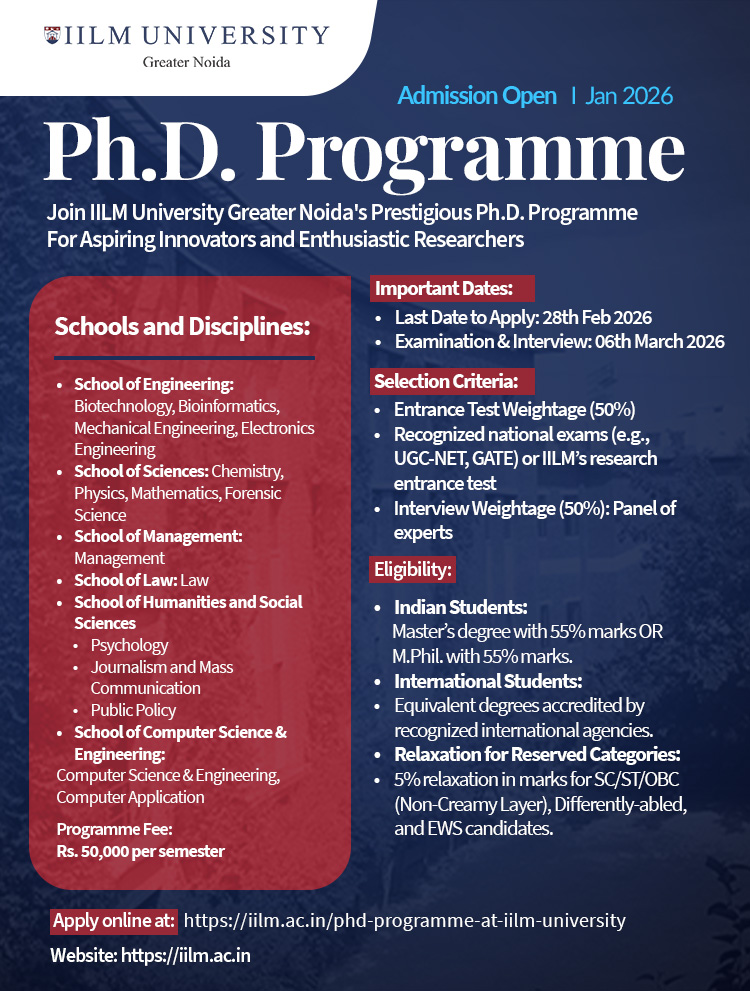
The School of Computer Science and Engineering at IILM University offers a comprehensive and NEP-compliant curriculum with customisable degrees, specialisations, and honours research options. Supported by experienced faculty, state-of-the-art labs, and global collaborations, the programme emphasises a hands-on, industry-focused approach. Students benefit from exposure to real-world scenarios, connections with professionals, and opportunities to innovate, ensuring they are well-prepared for success in the dynamic field of computer science.
This programme provides a robust foundation in computer science and engineering principles with a choice of five cutting-edge specialisations tailored to industry needs:

Equip students with a solid foundation in computer science principles and engineering practices to address real-world technological challenges.
Offer in-depth knowledge and skills in specialisations such as AI-ML, Data Science, Cyber Security, Cloud Computing, and Graphics and Gaming to prepare students for high-demand careers.
Encourage creativity and critical thinking to design innovative solutions for complex problems in computing and related fields.
Provide practical exposure through internships, projects, and hands-on learning to ensure students are job-ready for global technology industries.


Delivering quality education with a legacy of three decades.

A strong, supportive alumni community spread across the globe.

Partnering with renowned global institutions for a holistic education experience.

Connecting students with leading employers for rewarding careers.

Eco-friendly campuses situated in prime, accessible locations.

Recognising and rewarding academic excellence with financial support.

Learn from experts with rich academic and industry experience.

Experience an engaging and dynamic environment both inside and outside the classroom.

A curriculum designed to meet global standards of education and practice.
Industry Collaboration: Partnerships with leading companies provide real-world exposure and training.
Training The School focuses on holistic student development through technical training and soft skills enhancement. Expert guidance is provided for career planning, aptitude building, and placement preparation, including GDs, PIs, and mock interviews.
Internships Internships integrated into the NEP-compliant curriculum offer industry exposure, fostering professional growth, character development, and real-world readiness. Placements A dedicated
Placement Cell connects students with top career opportunities, ensuring they stay updated with industry trends and succeed in their professional journey.
